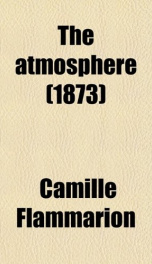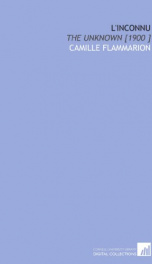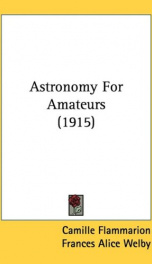the atmosphere

Purchase of this book includes free trial access to www.million-books.com where you can read more than a million books for free. This is an OCR edition with typos. Excerpt from book: CHAPTER VII. SHOOTING-STARS.BOLIDES.AEROLITES.STONES FALLING FROM THE SKY. None of my readers will have failed to have been struck with surprise, during the calm of a fine starry night, by the spectacle of a star gliding noiselessly through the celestial vault to extinction. Some, perhaps, of those who peruse these pages, may have enjoyed the rare privilege of beholding, not only a shooting-star, but a more brilliant and sometimes very exciting phenomenon, viz. the rapid passage through space cf a flaming bolide, scattering a gleaming light in all directionsa globe of fire leaving a luminous track behind it, and sometimes bursting with an explosion like that of an enormous shell, and a report like that of a cannon. Some, perhaps, also, by a still more fortunate chance, have had an opportunity of picking up a fragment of an exploded bolidea piece that has fallen from the skyan aerolite or stone that has come down from the heights of the atmosphere. We here have three distinct facts, which nevertheless seem to be related to each other in their origin. The progress made during the last few years in the special study of these meteors is a reason for considering them separately, taking first the shooting-stars, then the bolides, and lastly the aerolites. The first point to consider in the study of shoot ing-stars is the measurement of the height at which they are seen. Two spectators, placed at a distance of some miles from each other, notice the passage of a shooting-star amongst the constellations ; its path is not exactly the same to both observers, owing to perspective. From the observation of these two paths the distance can be obtained. This method, as early as 1798, two German savans, Brandos and Benzemberg, had already made use of. From the latest researches u...
Info about the book
Author:
Series:
Unknown
ASIN:
B000MXDRI2
Rating:
5/5 (3)Your rating:
0/5
Languge:
English
Users who have this book
Users who want this book
What readers are saying
What do you think? Write your own comment on this book!
write a commentif you like the atmosphere try:
Do you want to exchange books? It’s EASY!
Get registered and find other users who want to give their favourite books to good hands!






